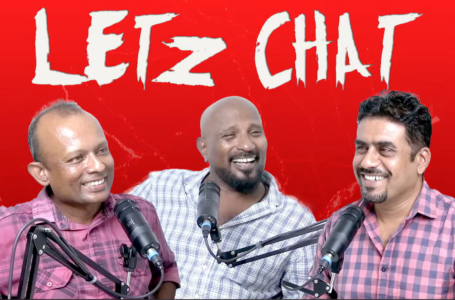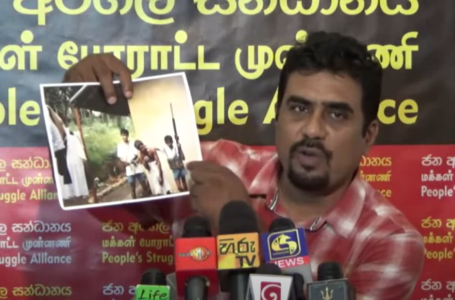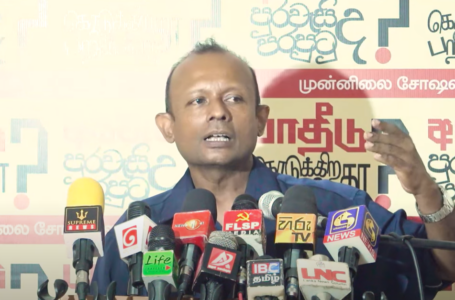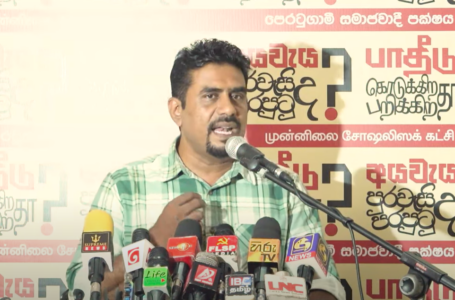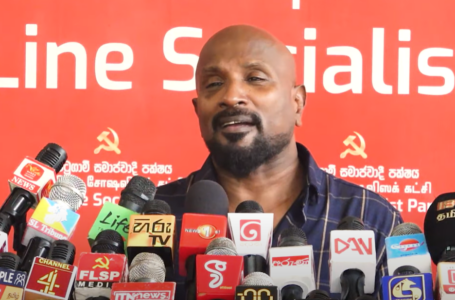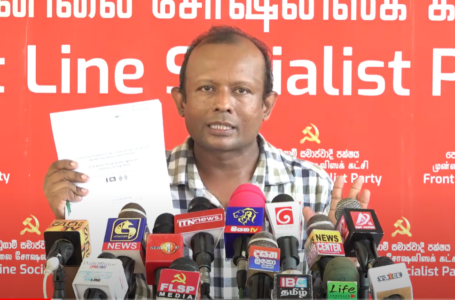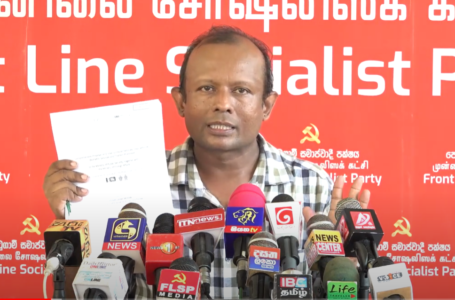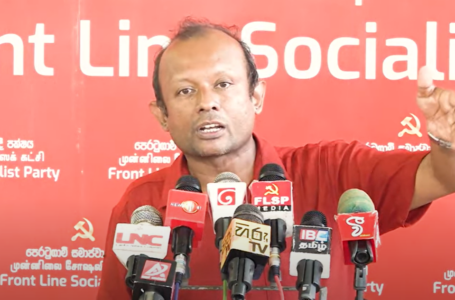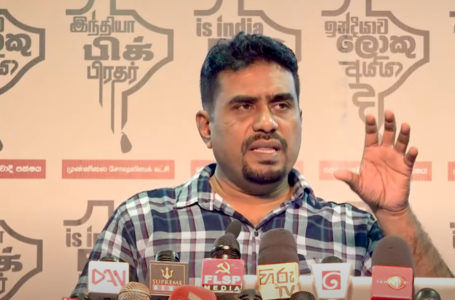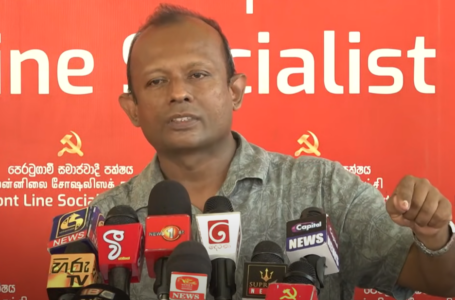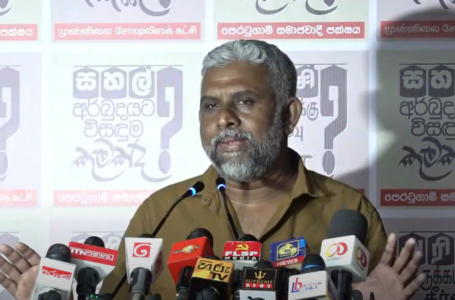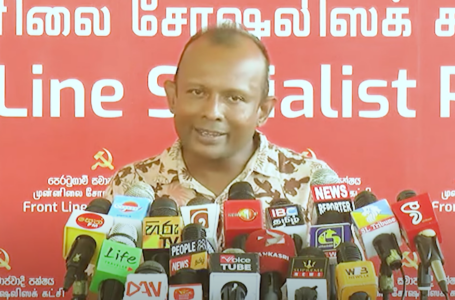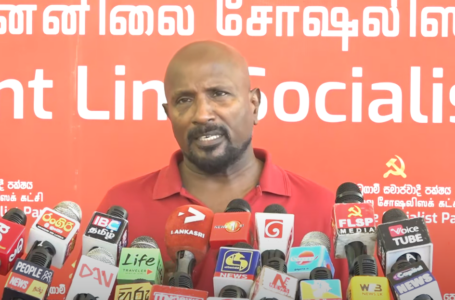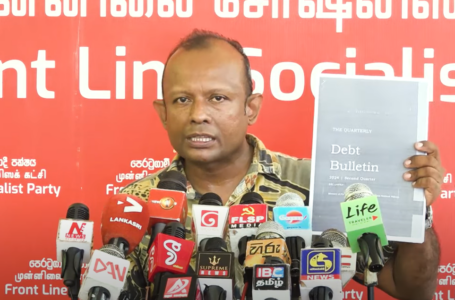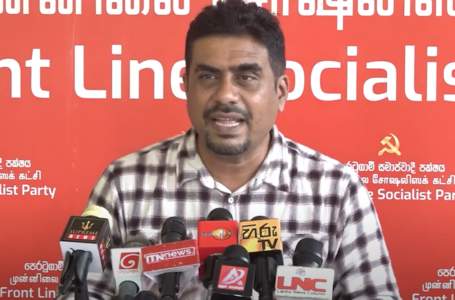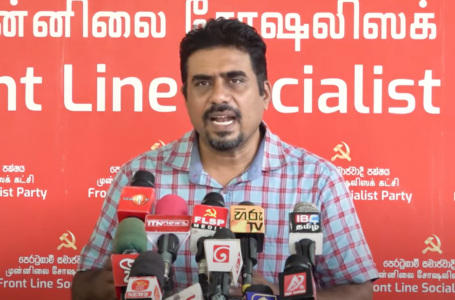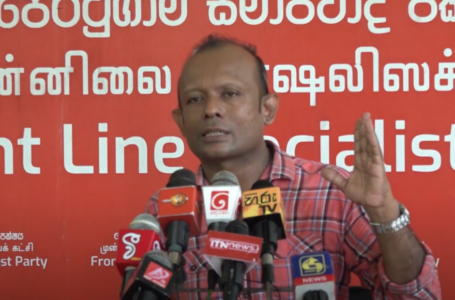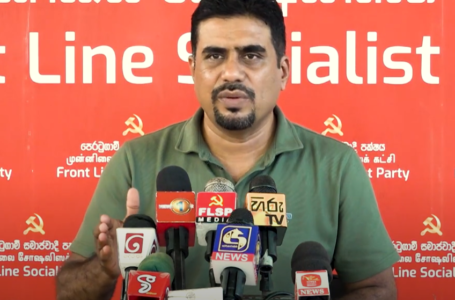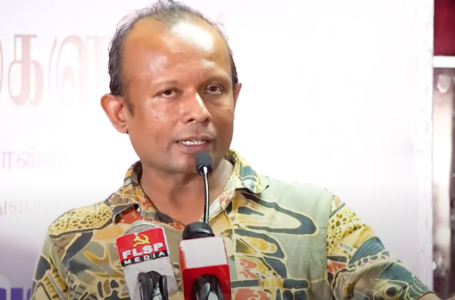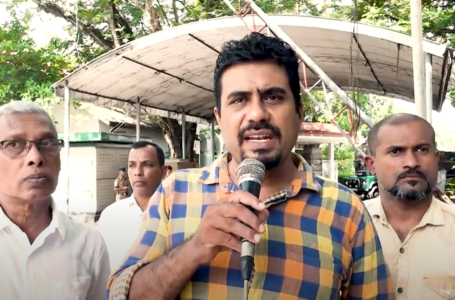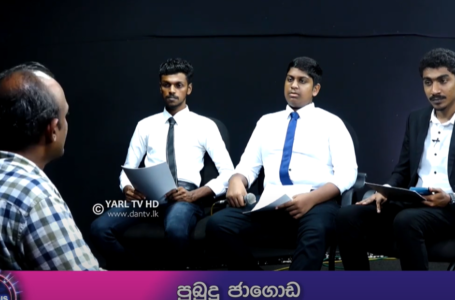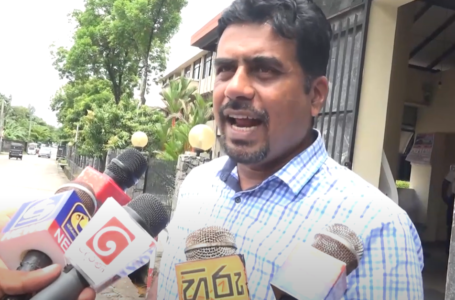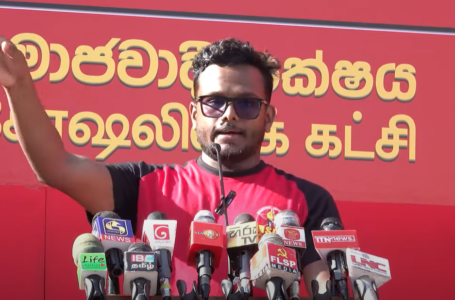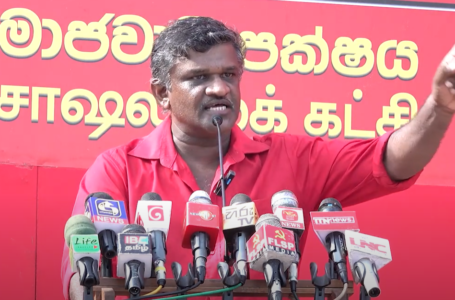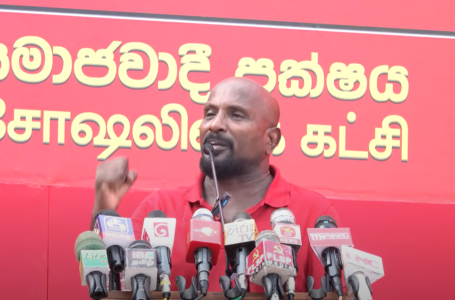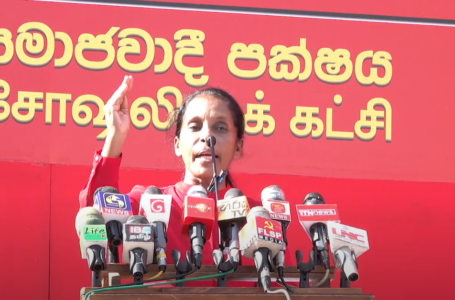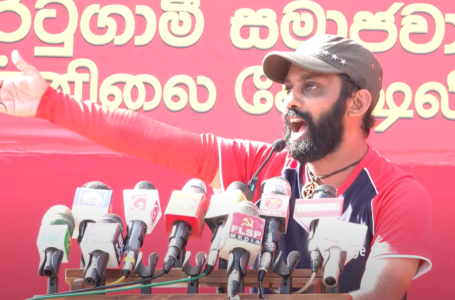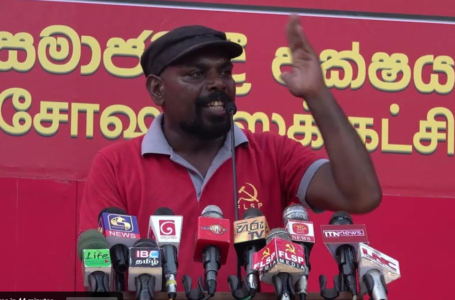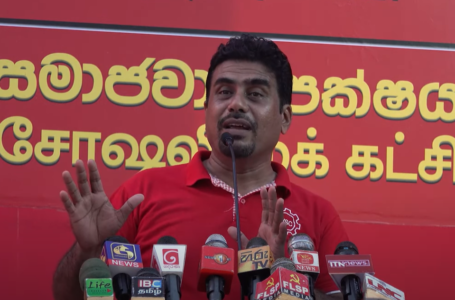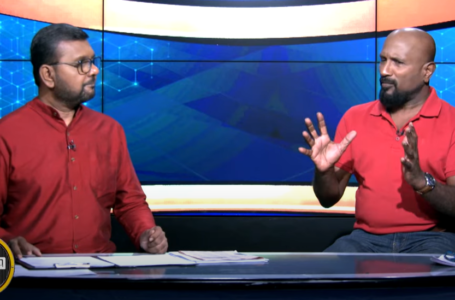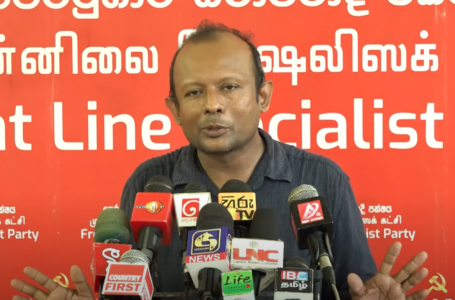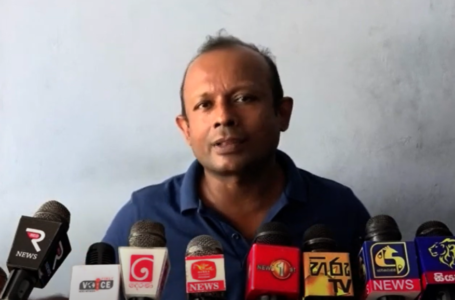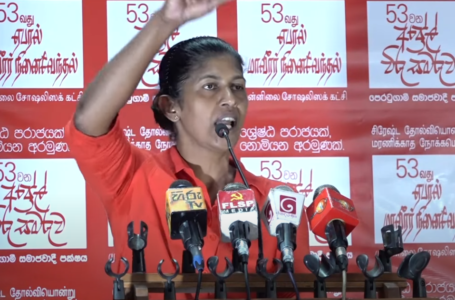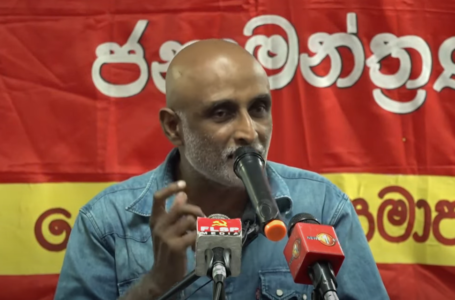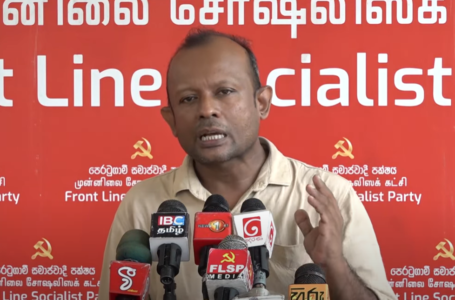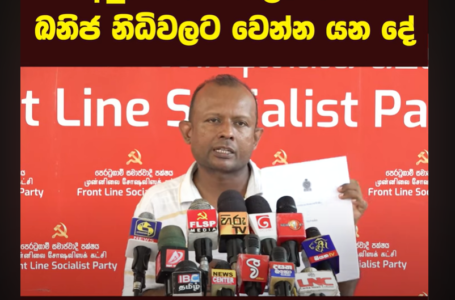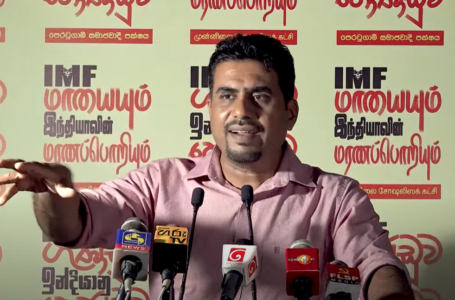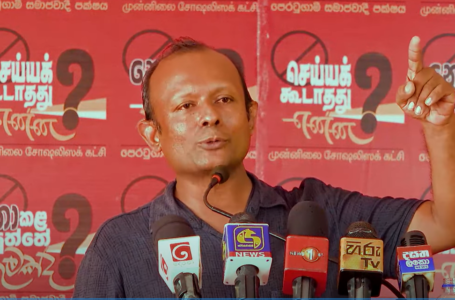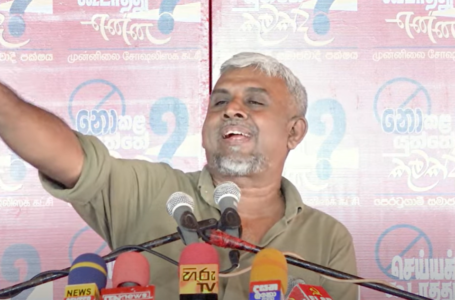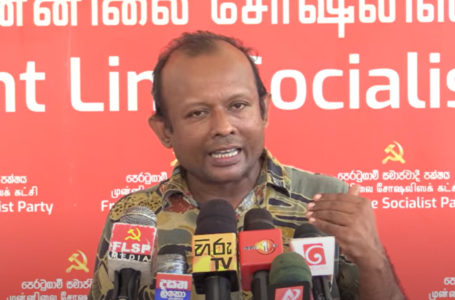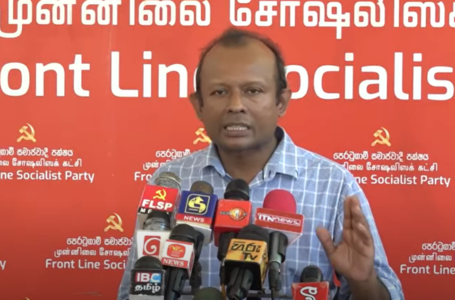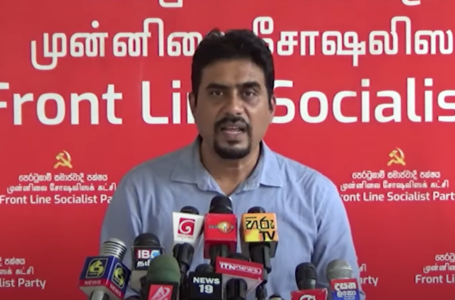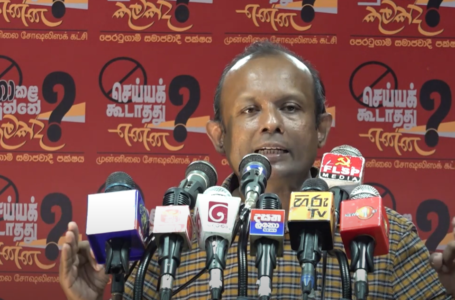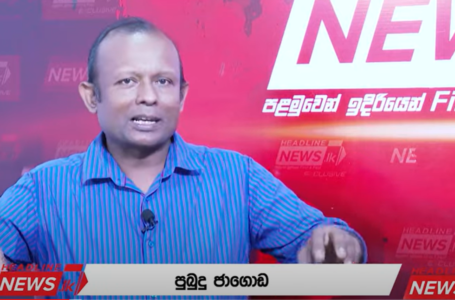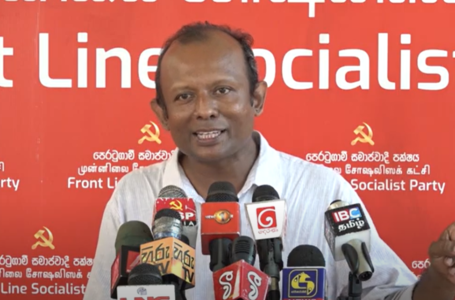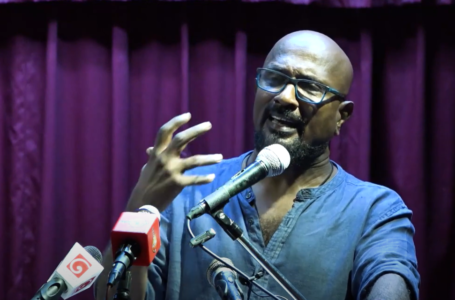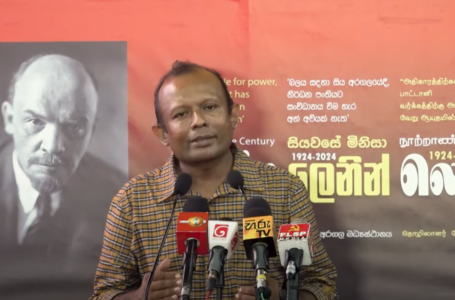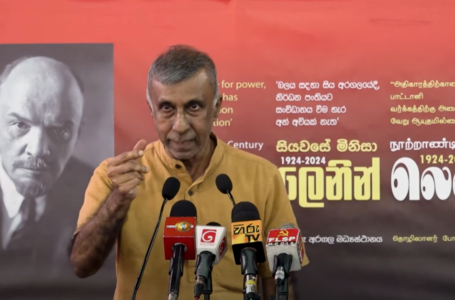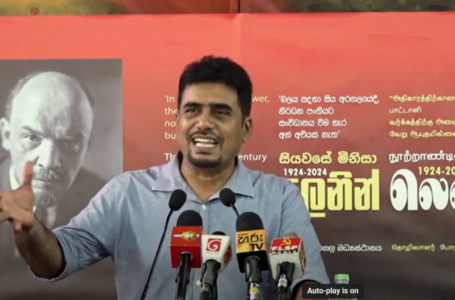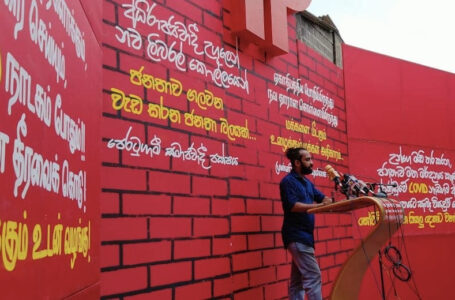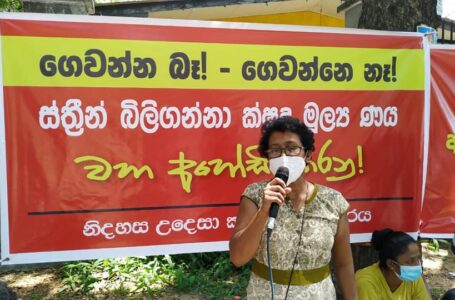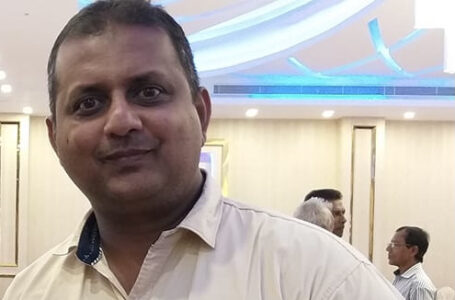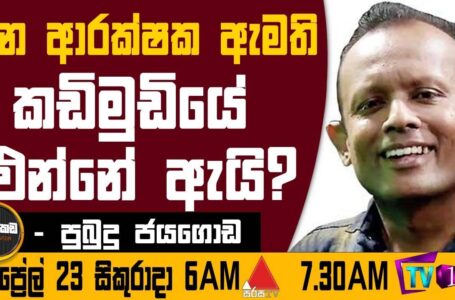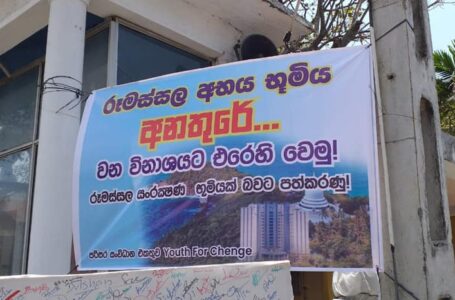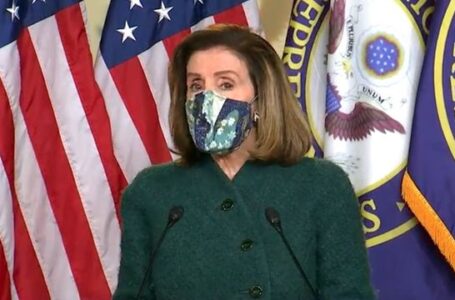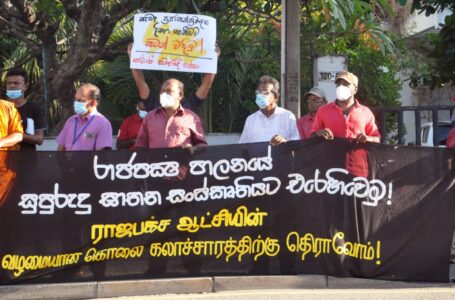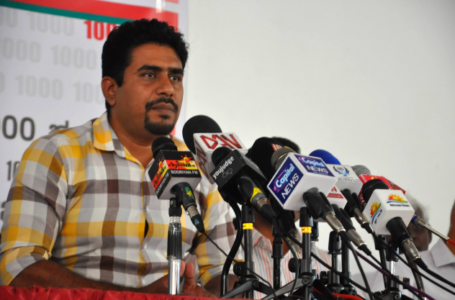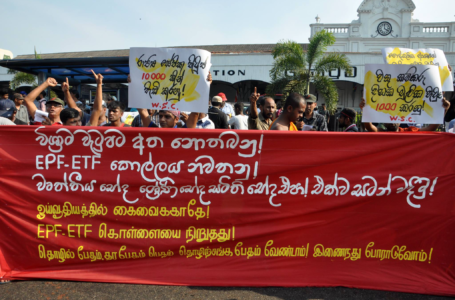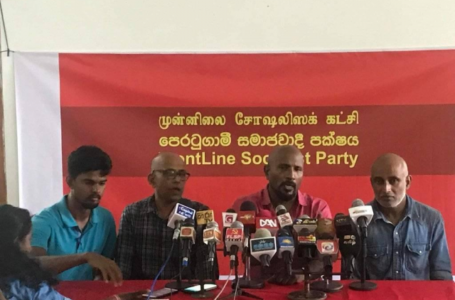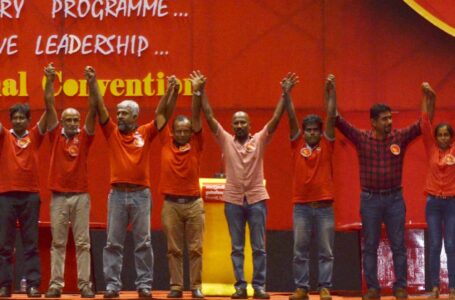Open Wounds and Mounting Dangers
- Vidhura
- February 1, 2021
- 122
- 18 minute read
Blocking Accountability for Grave Abuses in Sri Lanka
The protection of basic human rights in Sri Lanka is once again at a turning point. Since his election in 2019, President Gotabaya Rajapaksa and his government have waged a campaign of fear and intimidation against human rights activists, journalists, lawyers, and other perceived challengers. The administration has pursued policies hostile to ethnic and religious minorities and repressed those seeking justice for abuses committed during the country’s 26-year civil war that ended in 2009. Fundamental democratic freedoms and fragile post-war reconciliation are in danger.
This report details how the Gotabaya Rajapaksa government is blocking investigations into some emblematic cases of serious violations, documents ongoing repression of minority groups, and highlights the intimidation of activists and family members of victims seeking accountability. The government has withdrawn from a 2015 consensus resolution (known as resolution 30/1) of the United Nations Human Rights Council that sought to ensure justice and end impunity; and has claimed an end to the “era of betraying war heroes” and “allowing foreign forces to interfere in the internal affairs of the country.”
The secessionist insurgency of the Liberation Tigers of Tamil Eelam (LTTE) led to serious human rights abuses by both sides and claimed over 100,000 lives. This report finds that, notwithstanding the Sri Lankan government’s claims to be committed to a domestic justice process—despite many that have failed in the past—several police investigations into human rights violations that had made modest progress since 2015 have since been derailed under Rajapaksa’s presidency. On March 26, 2020, President Rajapaksa even pardoned Sgt. Sunil Ratnayake, one of very few members of the Sri Lankan security forces ever convicted of human rights violations. At the same time, several officials facing serious allegations of wartime abuses have been appointed to senior government positions.
Sri Lanka now presents an acute challenge to the United Nations’ commitment to upholding international human rights and humanitarian law in the face of grave crimes. Since the conflict, UN member countries have invested in accountability for serious crimes committed during the conflict and in building rights-respecting institutions. In view of Sri Lanka’s current backsliding and intransigence on impunity, it is crucial that foreign governments, donors, and international institutions now reinforce efforts to promote accountability, starting with a resolution at the Human Rights Council session beginning in February 2021 to maintain scrutiny of Sri Lanka’s human rights situation.
The resolution should seek to establish an independent international mechanism to investigate allegations of war crimes and human rights violations, secure evidence, identify perpetrators, and prosecute those responsible. The UN Office of the High Commissioner for Human Rights (OHCHR) should continue to monitor and report on the human rights situation in Sri Lanka and provide recommendations on actions needed to provide justice for victims and accountability for perpetrators.
The UN’s own credibility is at stake. Facing severe criticism for the global body’s failures to intervene and protect civilians in the final phase of the war, then-UN Secretary-General Ban Ki-moon in June 2010 appointed a three-member panel of experts to advise him, which recommended “a comprehensive review” of actions by the UN system “regarding the implementation of its humanitarian and protection mandates.” That review, which became known as the Petrie Report, laid bare the “systemic failures” of the UN in its engagement on Sri Lanka during the conflict and its aftermath, and is the basis of the policy of Human Rights up Front.
The Human Rights Council in March 2014 called for an independent investigation by the OHCHR. The OHCHR Investigation on Sri Lanka, known as the OISL Report, found horrific wartime abuses committed by both sides to the conflict and concluded that “for accountability to be achieved in Sri Lanka, it will require more than a domestic mechanism.” Following the OISL Report, the Human Rights Council in 2015 passed a landmark consensus resolution that set out a detailed set of steps for Sri Lanka to pursue accountability and reconciliation, as well as security sector reform, to prevent future abuses. Sri Lanka’s compliance with these recommendations will be evaluated by the council in 2021 and will come up short.
To protect Sri Lanka’s beleaguered civil space and marginalized populations, foreign governments and the United Nations should both press the Rajapaksa government to end ongoing abuses and advance efforts to hold accountable those responsible for past atrocities.
***
Soon after taking office, President Rajapaksa began appointing current and former military officers to oversee civilian agencies and by creating “task forces” of military officers with loosely defined remits. The government issued directives putting the Defense Ministry in control of civilian agencies such as the police and amended the constitution to remove important limits on presidential power. Sri Lanka’s already inadequate and flawed investigative and legal institutions have lost any semblance of independence.
The administration has displayed particular hostility to police investigators tasked with identifying and prosecuting those responsible for serious abuses committed under the previous Rajapaksa government from 2005 to 2015. During those years Mahinda Rajapaksa, the current prime minister, was president, and his brother, Gotabaya, the current president, was defense secretary. Thousands of young Tamil men who were suspected LTTE supporters, as well as journalists, activists, and others deemed to be political opponents were abducted, many by armed men operating in white vans, which became a symbol of political terror. Many have never been heard from again.
After Mahinda Rajapaksa was defeated in the 2015 presidential election, a government led by President Maithripala Sirisena and Prime Minister Ranil Wickremesinghe adopted some measures to restore rights, including through the Human Rights Council consensus resolution of 2015. The government worked with OHCHR and invited several UN experts to investigate and make recommendations. It held public consultations on justice and reforms, which were led by civil society activists. It took steps to start addressing enforced disappearances and reparations, with the support of donors and international experts. The generalized fear of the post-war Rajapaksa years largely dissipated.
Gotabaya Rajapaksa has denounced these international and domestic efforts to bring those responsible for the serious human rights violations to justice. Activists and the families of victims that had backed efforts towards the resolution have been threatened by security forces. The government’s claim that it is committed to “achieving accountability …. through the appointment of a domestic Commission of Inquiry” is not plausible. Even as it promised a new inquiry, the government told the Human Rights Council that allegations against senior military officers are “unacceptable” and without “substantive evidence.”
Considering the numerous previous failed commissions under successive Sri Lankan governments, and the government’s own actions since taking office, yet another domestic inquiry is a hollow promise. As Mangala Samaraweera, who as foreign minister in the previous administration had led the negotiations at the Human Rights Council, wrote in the Colombo Telegraph in 2020:
Back-tracking on the [30/1] resolution sends a very clear signal to the people of our country and our partners in the world. The message is that Sri Lanka cares not for reconciliation, accountability, or even democracy. It heralds the dismantling of the institutions that form the bedrock of our nation’s progress, the reversal of trust among communities and countries that was earned through much toil, and the embrace of our basest instincts of hate, insecurity, fear, and envy.
In 2019, UN High Commissioner for Human Rights Michelle Bachelet noted that “the risk of new violations increases when impunity for serious crimes continues unchecked.” In 2020, she warned that “the failure to ensure accountability for past violations and to undertake comprehensive security sector reforms to dismantle the structures that facilitated them means that the people of Sri Lanka, from all communities, have no guarantee that violations will not recur.”
Silencing Victim’s Families and Critics
Families of victims campaigning for justice have faced threats from state security forces since Gotabaya Rajapaksa became president. For instance, a member of the advocacy group Mothers of the Disappeared, whose son was forcibly disappeared in 2009, told Human Rights Watch that since the presidential election she has been repeatedly visited by members of the police Criminal Investigation Department (CID):
They have come and asked who is going to meetings. And who is going to Geneva [to attend the UN Human Rights Council]. These are children who were taken by white vans from our houses or who surrendered [to the army]. These are the children we are talking about. I want to know what happened to my son, whether he is dead or alive, and if he is not alive, what happened to him and who did it; whether he was beaten, whether they broke a limb.
Activists, particularly those working in the predominantly Tamil northern and eastern parts of the country on behalf of relatives of the forcibly disappeared, told Human Rights Watch that they had observed a rise in government surveillance and intimidation. As one activist explained, the recent constitutional amendment had vested the president with “total power,” leading to increased fear:
Any activity he does not want to tolerate, he will arrest people. So very little is going on among activists and people are in self-censorship mode. The Mothers of the Disappeared have stopped their protests. They are followed by the intelligence services, even some people’s houses are watched.
Authorities have also visited offices of nongovernmental organizations (NGOs). For instance, members of the Terrorism Investigation Department (TID) visited a group in northern Sri Lanka. “It looks like they are keeping tabs really well,” an activist said. “They asked questions from A to Z: school, family.… You can just tell they are trying to wear
you out.”
Intelligence agencies also demand to see financial and administrative records of activist groups, and especially details of funding from donors abroad, leading to fear that authorities will allege accounting errors as a pretext to shut them down or to bring criminal charges. Said one activist: “In the investigation they told us, ‘You have used money you received from abroad for terrorist activities in Sri Lanka. You are involved in terrorist activities, that is why you have been called for investigation.’” Some activists reported that their banks have prevented their organizations from making or receiving transfers.
Despite clear evidence of systematic harassment and intimidation of victims and activists, as described in a report by the UN secretary-general in September 2020, the government of Sri Lanka has denied this behavior in statements to the Human Rights Council.
In January 2021 the government of Sri Lanka drew international condemnation for demolishing a monument at Jaffna University which commemorated Tamil civilian victims of the war. Public Security Minister Sarath Weerasekera called the monument a memorial to “dead terrorists,” but protesting students said the action was a “denial of a people’s right to memory.”
Conflict-Era Violations and Failure of Accountability
The LTTE over many years committed numerous atrocities, including suicide bombings and other indiscriminate killings of civilians, torture, the use of child soldiers, forced displacement of ethnic populations, targeted killings, and summary executions. Abuses by government forces included arbitrary arrests and detention, extrajudicial killings, rape and other sexual violence, enforced disappearance, torture and other ill-treatment, and indiscriminate attacks on civilians.
In 2009, government forces defeated the LTTE amid widely documented mass atrocities. The 2011 report of a Panel of Experts, appointed by UN Secretary-General Ban Ki-moon, found that “[t]ens of thousands lost their lives from January to May 2009, many of whom died anonymously in the carnage of the final few days,” and that government forces even “systematically shelled hospitals.”
The government also cracked down on civil society, threatening activists, journalists, and lawyers seeking redress for abuses. Security forces detained Tamil men and women on suspicion that they were LTTE supporters and tortured them in custody. There were numerous enforced disappearances and killings.
In the 2015 presidential election, Mahinda Rajapaksa was defeated by a challenger from his own Sri Lanka Freedom Party, Maithripala Sirisena, who had the support of the political opposition, including the United National Party (UNP). The UNP won the parliamentary election, and party leader Ranil Wickramasinghe became prime minister. This government joined the 2015 consensus resolution of the UN Human Rights Council, pledging truth and reconciliation, reparations, and a justice process including Sri Lankan and international investigators, prosecutors, and judges. During its five-year term, the government made slow progress in meeting these commitments, but eventually established an Office on Missing Persons and an Office for Reparations.
Mahinda Rajapaksa formed a new political party called the Sri Lanka Podujana Peramuna (SLPP), which drew many members of his former party. With his brother Gotabaya as the presidential candidate in 2019, the SLPP campaigned against the prosecution of military officers responsible for war crimes. Gotabaya Rajapaksa became president in
November 2019.
In February 2020, the new government withdrew its support from Human Rights Council resolution 30/1 (and the subsequent resolutions 34/1 and 40/1 extending the mandate), claiming it would instead appoint a domestic commission of inquiry.
Protecting and Reinstating Perpetrators
During his presidential election campaign, and repeatedly since, Gotabaya Rajapaksa has stated his determination to protect “war heroes” from prosecution, saying in November 2019 that a large number “are languishing in prisons over false charges and cases.”
In fact, there have been virtually no successful prosecutions of members of the security forces for human rights violations. Gotabaya Rajapaksa himself faces allegations related to his former role as defense secretary and is named in a civil suit filed in the United States for the killing of journalist Lasantha Wickrematunge in January 2009.
In March 2020, the president pardoned Sgt. Sunil Ratnayake of the Special Operations Unit of the 6th Gajaba Regiment, Gotabaya Rajapaksa’s former unit. The Supreme Court had upheld the conviction of Sergeant Ratnayake in April 2019, ruling that “from the nature of the injuries it can be concluded that the injuries were inflicted with the intention of causing their deaths.” Human rights lawyers have challenged the presidential pardon in the Supreme Court. The petitions are currently scheduled to be heard in February 2021.
Between 2015-19, a number of police investigations into conflict-related human rights violations—which were blocked under the previous Mahinda Rajapaksa government—did begin to make progress, and to reveal evidence of official responsibility for killings and enforced disappearances. Many of those investigations have been derailed since Gotabaya Rajapaksa became president.
In November 2019, immediately after the presidential election, Nishantha Silva, an officer in the police Criminal Investigation Department (CID) investigating several cases described in this report, including the “Navy Case,” the Welikada prison massacre, and the disappearance, killing, and torture of journalists under the previous Rajapaksa administration, fled the country following threats. In July 2020, the former director of the CID, Shani Abeysekara, was arrested for allegedly fabricating evidence against a police officer considered close to Gotabaya Rajapaksa. On August 3, 2020, a police sergeant told a magistrate he was being pressured to give false testimony against Abeysekara. In December 2020, Abeysekara, who contracted Covid-19 in custody, filed a fundamental rights petition in the Supreme Court against his arrest and detention.
In the high profile “Navy Case,” the CID had produced a significant body of evidence and identified 14 suspects in the abduction and disappearance of 10 men and a 17-year-old boy by naval intelligence officers in 2008-9. Among those accused is the former chief of defense staff, Adm. Ravindra Wijegunaratne. The president promoted Commodore D.K.P. Dassanayake, the alleged ringleader, to the rank of rear admiral.
On January 9, 2020, Gotabaya Rajapaksa appointed a three-member presidential commission to look into the supposed “political victimization” of government officials by the previous government. Activists fear that the commission obtained police files related to investigations that have focused on the alleged role of military intelligence and leaked them to the military. In late January 2020, the commission ordered a halt to the trial of naval officers accused in connection with the “Navy Case” abduction and disappearance of the 11 people. The attorney general said the commission had no power to do so. The trial was scheduled to proceed until it was stayed by the Court of Appeal in June 2020.
The Presidential Commission on Political Victimization has also sought to intervene in several other cases, including the abduction and torture of Keith Noyahr, the murder of Lasantha Wikremetunge, and the disappearance of Prageeth Ekneligoda. Several accused testified to the commission that they felt persecuted by investigators, whom they accused of pursuing an agenda against Gotabaya Rajapaksa.
After submitting its report to President Rajapaksa in December 2020, the chairman of the commission, retired Supreme Court judge, Upali Abeyratne, was appointed chair of the Office of Missing Persons (OMP). The OMP was established by the previous government to investigate enforced disappearances. Some victim families said that Abeyratne’s appointment will stall these investigations. As a mother of a disappeared man noted, “Appointing a person who has acted in a way that obstructs the administration of justice to the first seat in an institution related to disappearances, destroys the administration of justice.” Sandhya Ekneligoda, the wife of the disappeared journalist Prageeth Ekneligoda, warned that Abeyratne had “over the last several months, actively colluded with those accused of enforced disappearance, to undermine and threaten the constitutionally guaranteed rights of families of the disappeared to seek legal redress.”
The findings and recommendations of the Presidential Commission on Political Victimization have not yet been revealed.
In November 2020, police in the United Kingdom opened an investigation into the role played by Keenie Meenie Services (KMS). Established by veterans of a British special forces regiment, the SAS, in the 1980s KMS trained an elite paramilitary unit of the Sri Lanka police called the Special Task Force (STF), which is notorious for atrocities. However, the Gotabaya Rajapaksa administration has ignored the new evidence, despite numerous serious allegations against the STF, including the killing of five students in Trincomalee in January 2006, and the Welikada prison attack in November 2012.
On October 22, Sri Lanka’s parliament adopted the 20th amendment to the constitution, which gives the president sweeping powers, including to appoint senior judges, the attorney general, and members of previously independent bodies, such as the human rights commission. A human rights activist in northern Sri Lanka said:
All those [human rights] cases are now being withdrawn or dismissed by the courts…. When you have these 20th amendment powers bringing the attorney general and courts under the president, what else are they going
to do?
On January 13, 2021, the Batticaloa High Court acquitted a pro-government member of parliament, Sivanesathurai Chandrakanthan (alias Pillayan) and four other suspects of the 2005 murder of an opposition parliamentarian Joseph Pararajasingham, after the attorney general decided to drop charges in the case. Chandrakanthan, who was a member of a pro-government armed group at the time of the killing, had been arrested in connection with the case after Mahinda Rajapaksa lost power in 2015. He was elected to parliament in August 2020 and released on bail in November.
Rajapaksa has appointed or promoted several serving and retired military officers who are credibly accused of grave abuses to senior posts in his government. Defense Secretary Kamal Gunaratne was commander of the 53rd division at the end of the war, and Gen. Shavendra Silva, the acting chief of defense staff, was the commander of the 58th division, units facing serious allegations of war crimes. On December 28, 2020, Silva was promoted to four-star general.
Prasanna Alwis, an officer of the police Terrorism Investigation Department (TID) accused of suppressing evidence and shielding suspects in the murder of journalist Lasantha Wickrematunge, was appointed director of the CID on May 21, 2020. C.A. Chandraprema, who wrote an effusive account of Gotabaya Rajapaksa’s role in defeating the LTTE in his book Gota’s War, was appointed Sri Lanka’s permanent representative to the UN in Geneva. Chandraprema was years earlier a member of an armed group accused of enforced disappearances and unlawful killings to quell the 1980s Sinhala leftist uprising.
Earlier, on November 22, 2018, police inspector Neomal Rangajeewa, then on bail for the alleged murder of inmates in Welikada prison in 2012, was reinstated to the police during the brief period when President Sirisena installed Mahinda Rajapaksa as prime minister.
In September 2020, Michelle Bachelet, the UN high commissioner, expressed concern over the “appointments to key civilian roles of senior military officials allegedly involved in war crimes and crimes against humanity.” Sri Lanka responded to the Human Rights Council that the “accusations on crimes or crimes against humanity made against these senior military officials are unacceptable.”
Key Recommendations
To the Government of Sri Lanka
- Cease attempts to stifle dissenting voices, including lawyers, journalists, human rights defenders, and the victims of past abuses and their families.
- Implement the recommendations made by UN special rapporteurs and working groups who have visited and reported upon Sri Lanka since 2015, beginning with prosecuting serious crimes of torture, extrajudicial killings and custodial deaths.
- Restore the independence of police investigators and the Attorney General’s Office to pursue criminal investigations against alleged perpetrators of grave abuses. End the harassment of officials who are involved in investigations of alleged human rights abuses.
To Foreign Governments
- Support a resolution at the 46th session of the UN Human Rights Council beginning in February 2021 to advance international accountability for international crimes committed in Sri Lanka. The new resolution should include:
- Continued reporting by the Office of the UN High Commissioner for Human Rights;
- A mandate to the OHCHR to collect, preserve, and analyze evidence of serious violations of international law committed in Sri Lanka, to identify perpetrators and prosecute those responsible.
- A mandate for the high commissioner to report to the Human Rights Council on actions needed to advance accountability.
- Impose targeted sanctions on individuals credibly accused of serious human rights abuses and violations of international humanitarian law in Sri Lanka.

